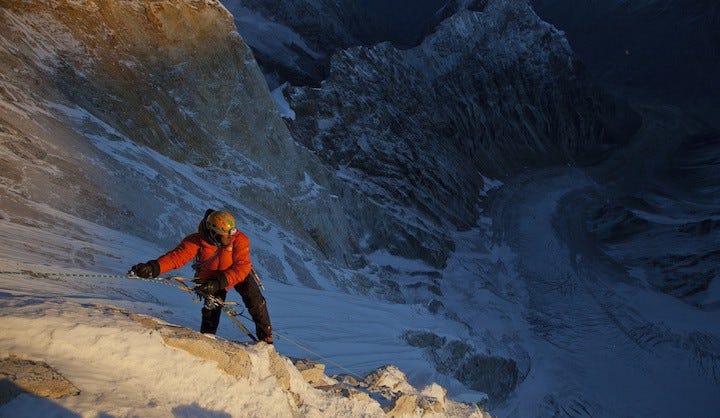‘Meru’ Scales To New Heights Of Adventure Documentary Filmmaking

The central peak of Meru, a mountain in the Gharwal Himalayas, towers more than 21,000 feet. One route to this summit, the so-called “Shark’s Fin,” is renowned by mountaineers as one of the most difficult ascents in the world. As author Jon Krakauer explains in the film, it’s a journey that mixes multiple, disparate skills — both ice and rock climbing, …
Keep reading with a 7-day free trial
Subscribe to Nonfics to keep reading this post and get 7 days of free access to the full post archives.



